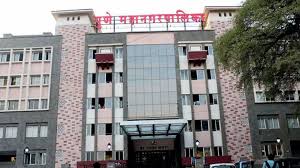Pune Municipal Corporation’s (PMC) revenue plans have been disrupted following a delay in property tax recovery from 32 recently merged villages. The civic body continues to await clear guidelines from the state government on the methodology for assessing tax in these areas, causing a significant shortfall in its budgetary projections.
After the merger, residents expected tax rates capped at twice their earlier gram panchayat charges. The state had stipulated this ceiling, but it did not specify how tax values should be calculated. The PMC, therefore, resorted to its standard valuation method, which stirred disquiet among property owners. As a result, inhabitants of societies like Neco Beaumont in Handewadi report they have received no tax bills in the past three years and fear a lump-sum demand when the delay ends. Demanding clarity, residents maintain that without transparent communication on valuation and rates, the tax may become both burdensome and unjust. Civic activists and villagers from merged areas are planning protests unless the PMC and state government resolve the ambiguity.
Meanwhile, PMC officials confirm that while core city properties have received tax notices, the 32 merged villages—now encompassing nearly 2.75 lakh properties—have not been billed. This gap was looping a projected ₹150 crore into a pool of uncertain, pending revenue. The council has approached the state government, urging an immediate directive to proceed with billing at twice the previous gram panchayat rates and requesting proportional shares of GST and stamp duty to compensate for the delay. Underpinning the dispute is a broader question of governance and urban equity. Critics argue that merging these villages without requisite infrastructure investment—on roads, drainage, water supply, and waste management—deprives residents of basic services they are expected to pay for. Many feel the PMC is prematurely shifting fiscal burdens before addressing neglected civic needs.
Local spokesperson Shrirang Chavan of the Haveli Taluka Citizens’ Forum notes: “Residents feel deceived since promises of gradual tax integration were not matched by improved services,” highlighting a trust deficit rooted in poor communication and unmet expectations. Technically, the lack of a development plan and revenue framework has exacerbated the situation. Even digital initiatives, such as the PMC’s SMS/email billing system, have excluded merged villages while the rest of the city embraces online payment.
As the civic body navigates a revenue gap alongside service pressures, state authorities are now expected to release a formal formula. Deputy Chief Minister Ajit Pawar has reportedly intervened, directing a halt to aggressive property tax enforcement until a consensus is reached on rates and resident support is improved. This tax impasse reflects the growing pains of urban expansion. Pune’s ability to absorb adjacent villages sustainably will hinge on transparent valuation, equitable tax policies, and visible infrastructure upgrades. Before expecting residents to contribute financially, the PMC must show it can reciprocate with improved civic services. Recovery can follow only when legitimacy and trust are restored.
Also Read: Buldhana Highway Flooded Samruddhi Expressway Traffic Halted by Rain


